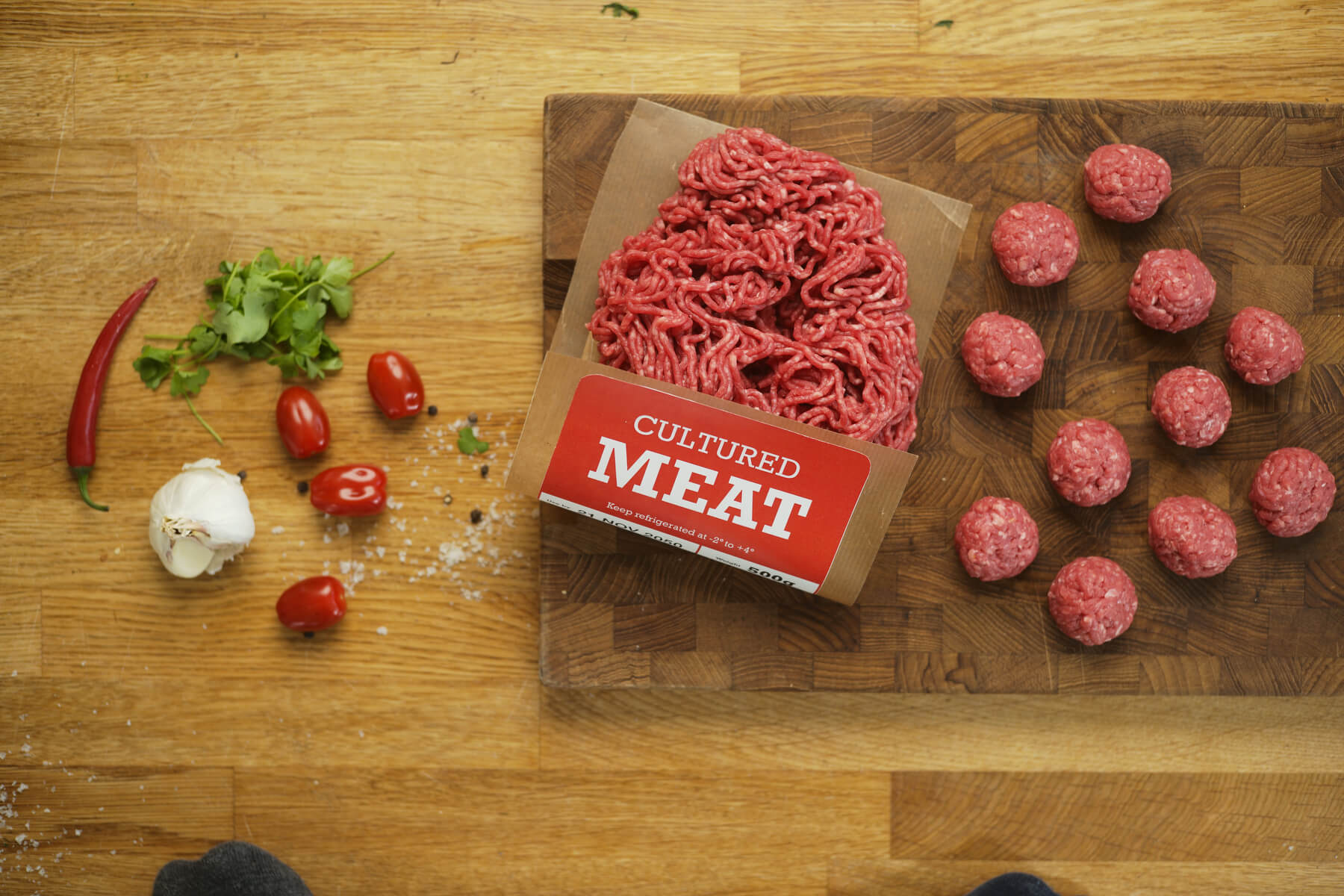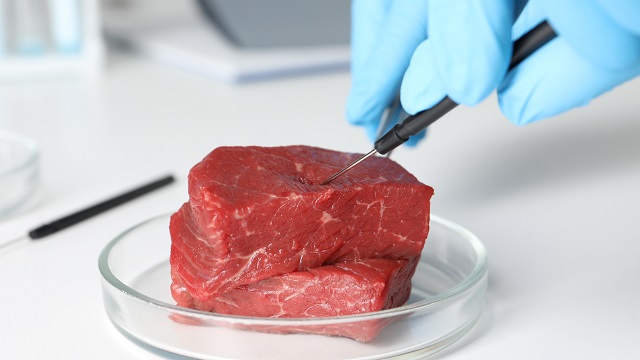Leading Sweden’s transition to sustainable food through the upscaling of cultivated meat production
Can cultivated meat become a commercially viable contender in the race to safeguard the future of sustainably produced meat? Swedish startup Re:meat is firmly convinced that the answer is “yes” and has partnered with Alfa Laval and other companies in efforts to build an industry cluster to achieve just that.
DATE 2024-10-11
Founded in 2022 and Scandinavia’s first cultivated meat company, Re:meat is on a mission to fundamentally redefine how meat ends up on people’s plates. To that end, they are scaling up and commercializing a process to cultivate sustainable meat that will potentially use 95% less land and 78% less water and emit 92% fewer GHG emissions than conventionally produced meat.
The process involves taking cell samples from healthy, free-range cows without harming them. These cells are then transferred to bioreactors, in essence tanks, where they are nurtured in an environment similar to the one in a traditional brewery. Here, they multiply, nourished by a growth medium, until they are harvested as meat ready to be turned into, for instance, burgers or meatballs.
It is also possible to produce pork and chicken using the same method, allowing people to eat meat without any animal needing to be killed and with considerably smaller environmental impact.
Currently operating at lab scale, Re:meat’s ambition is to scale up to commercial production over the coming years with the opening of a production site planned for 2027 in Skåne, a cluster location for food and biotech innovation in southern Sweden.
“To achieve the climate potential, cultivated meat must become affordable to the consumers. Our ambition is to reach a production cost of €1/kg. It may sound ambitious, but we are serious about trying,” says Gittan Schiöld, CCO at Re:meat.
To realize their ambition to help save the planet by redefining how meat is produced, the team at Re:meat is building a community of industry stakeholders with the aim of mobilizing, connecting and collaborating at all stages of the value chain to attract the right expertise and support to this innovation hub.
“This accelerator community, as Re:meat is calling it, involves meat producers, retail, specialists in food- and bioprocessing, automation, and even farmers,” says Johan Agrell, Vice President Next-Generation Food at Alfa Laval, one of the partner companies. “It’s an opportunity for mutual learning for all involved and the chance to build strong connections and engage in the right way with others who want to be part of the future of cultivated meat.”
Re:meat is one of approximately 150 startup companies around the world that are blazing a trail in this rapidly developing field of food production. The challenges are many, and the regulatory framework is still not in place. Only two companies currently have approval to sell their products in the US, and while approval has been granted in Singapore and Israel, retailers are not allowed to sell cultivated meat across all of Europe, including Sweden. No one has yet entered commercial-scale production.
“It is a brave new world for everyone involved in developing cultivated meat, and when you’re looking at scaling up to commercial production, you have to get the balance right between pharma-level functionality and food-processing cost levels,” says Johan. “That’s where we come in. We can help navigate the specific functional requirements versus the cost drivers because with our equipment portfolio we already do it in food, pharma, and biotech, so for a cultivated meat company, we are a very good partner to have.”
Highlighted technologies
Footprint

95% less land
Water savings

78% less water
CO2 savings
92% less GHG emissions

